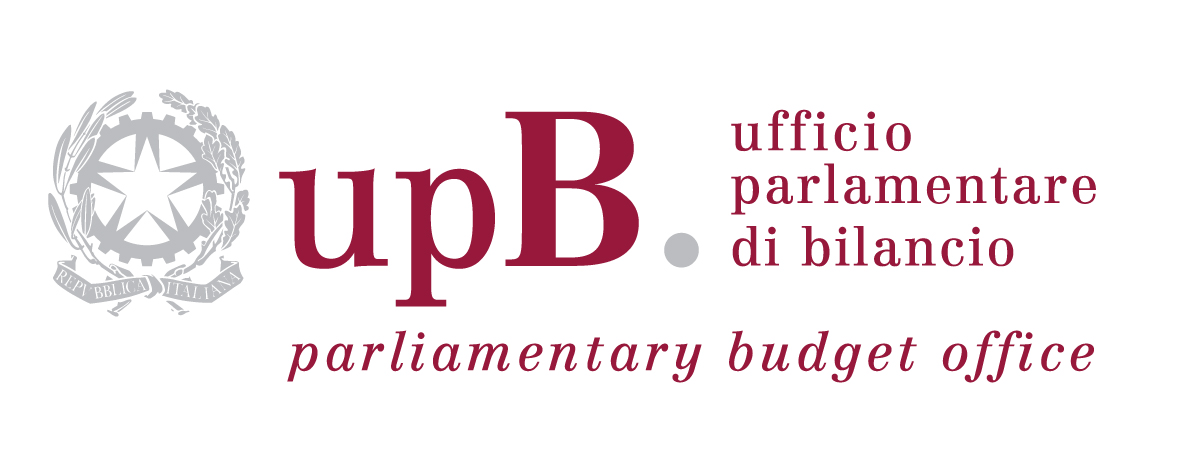The Chairman of the Parliamentary Budget Office (PBO), Giuseppe Pisauro, testified (in Italian) before a joint session of the Budget Committees of the Chamber of Deputies and the Senate as part of the preliminary examination of the Update to the 2016 Economic and Financial Document (the Update) published on 27 September by the Ministry for the Economy and Finance (MEF).
In his remarks, Chairman Pisauro offered an extensive analysis of the content of the Update, discussing the PBO’s assessment of the document and the reasons that, on the basis of currently available information, the validation process for the 2017 policy scenario would produce an unfavourable finding, with particular regard to the forecasts for real and nominal GDP growth next year. These forecasts appear excessively optimistic.
They are in fact significantly out of line with the range of projections of the PBO forecasting panel, which in addition to the PBO itself includes CER, Prometeia and REF.ricerche. The assessment also found substantial upwards divergences for real and nominal growth in 2018.
More specifically:
- in 2017 the policy growth rate is 0.3 p.p. greater than the average of the PBO panel forecasts and 0.2 p.p. greater than the highest of those projections;
- the divergence of the policy growth rate is attributable to the impact of the budget measures, which in the Update is estimated at 0.4 p.p. compared with the trend scenario, twice that of the PBO panel average;
- some concern regards the marginally expansionary impact (+0.1 p.p.) of the reduction in the deficit (-0.5 p.p.) needed to partially offset the increased borrowing generated by the deactivation of the safeguard clause (+0.9 p.p.);
- nominal GDP growth for next year is also higher (0.2 p.p. greater than the average of the panel forecasts). This variable has a key role in determining public finance ratios;
- the policy growth rate for 2018 is also out of line with the panel forecasts in both real and nominal terms (respectively 0.4 and 0.3 p.p. compared with the PBO panel forecasts).
For the purpose of European rules, the forecasts contained in the Draft Budgetary Plan, which will be presented on 15 October, are subject to validation. Any revisions of the scale and composition of the public finance measures compared with those in the Update will require a reassessment of the new macroeconomic scenario.
With regard to the developments in the public finances assumed in the Update, the PBO Chairman noted that the assessment reflects the indeterminacy of the policy scenario for next year and the subsequent years. For 2017, in the light of the request contained in the Report to Parliament, the draft budget could be submitted with a net borrowing requirement in excess of the 2 per cent of GDP envisaged in the 2016 Update, up to a maximum of 2.4 per cent. For 2018 and 2019 we must assume that the increase in VAT will remain in current legislation, which would represent a constraint on the design of future budget policy and lend the policy scenario an explicitly provisional character.
As regards the public finance objectives in the light of the fiscal rules, Chairman Pisauro noted that the Government is asking Parliament to update the compliance plan owing to two distinct exceptional events: the earthquake of 24 August and the scale of the migration emergency.
The exceptional events have been cited to request an additional update of the compliance plan to allow a possible additional increase in net borrowing up to a maximum of fourth-tenths of a point of GDP in 2017 (€7.7 billion).
The limited experience with the application of the exceptional events clause at the supranational level leaves considerable room for discretion: the European rules provide for events qualifying as exceptional to be sufficient to justify the approval of a divergence from the path of adjustment towards the Medium Term Objective, leaving it to the European Commission to assess circumstances on a case-by-case basis. It is therefore uncertain whether the Commission will grant the request to allow the spending connected with the unusual events, in an amount of up to four-tenths of GDP.
